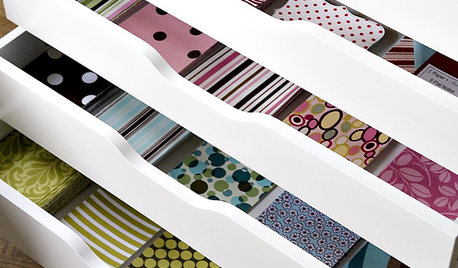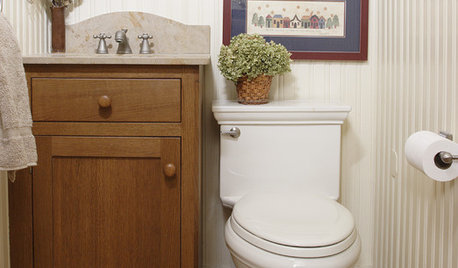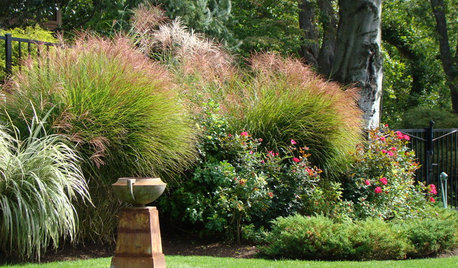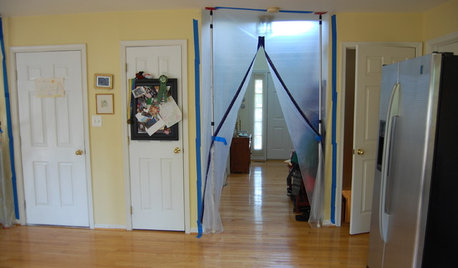Cattails, keeping them under control
jasper_60103
19 years ago
Related Stories

STUDIOS AND WORKSHOPSGet Your Craft Paper Under Control
A stash here, a roll there, and you can never find it when you need it? These tips for craft paper storage and organization can help
Full Story
MOST POPULAR4 Obstacles to Decluttering — and How to Beat Them
Letting go can be hard, but it puts you more in control of your home's stuff and style. See if any of these notions are holding you back
Full Story
GREAT HOME PROJECTSPower to the People: Outlets Right Where You Want Them
No more crawling and craning. With outlets in furniture, drawers and cabinets, access to power has never been easier
Full Story
HOUSEKEEPINGWhat's That Sound? 9 Home Noises and How to Fix Them
Bumps and thumps might be driving you crazy, but they also might mean big trouble. We give you the lowdown and which pro to call for help
Full Story
LANDSCAPE DESIGNThe 7 Best Plant Types for Creating Privacy and How to Use Them
Follow these tips for using different kinds of plants as living privacy screens
Full Story
LIGHTINGYour Guide to Common Light Fixtures and How to Use Them
Get to know pot lights, track lights, pendants and more to help you create an organized, layered lighting plan
Full Story
DECORATING GUIDES7 Design Rules and Why You Should Break Them
Think tile is only for kitchens and bathrooms? Art should hang at eye level? Time to consider breaking these old rules
Full Story
HEALTHY HOMEWhat to Know About Controlling Dust During Remodeling
You can't eliminate dust during construction, but there are ways to contain and remove as much of it as possible
Full Story
HOME TECHSwitch On the Phone-Controlled Home
Lock your front door from afar, let your thermostat set itself and more when you use your phone as a control device
Full Story
KIDS’ SPACESControl Kid Stuff the Sane Way — Artwork-Managing Strategies
Enlist your child's help in managing creative piles to set the stage for good habits and make organizing easier on you
Full StoryMore Discussions







cantstopgardening
jasper_60103Original Author
Related Professionals
Holly Springs Landscape Architects & Landscape Designers · West Milford Landscape Architects & Landscape Designers · Saint Charles Landscape Architects & Landscape Designers · Taylorsville Landscape Architects & Landscape Designers · Surprise Landscape Contractors · Columbine Landscape Contractors · Gresham Landscape Contractors · Haverhill Landscape Contractors · Hayden Landscape Contractors · New Cassel Landscape Contractors · North Haven Landscape Contractors · Reedley Landscape Contractors · Saint George Landscape Contractors · Siloam Springs Landscape Contractors · Casselberry Landscape ContractorsSusanWIN
modbass
webkat5